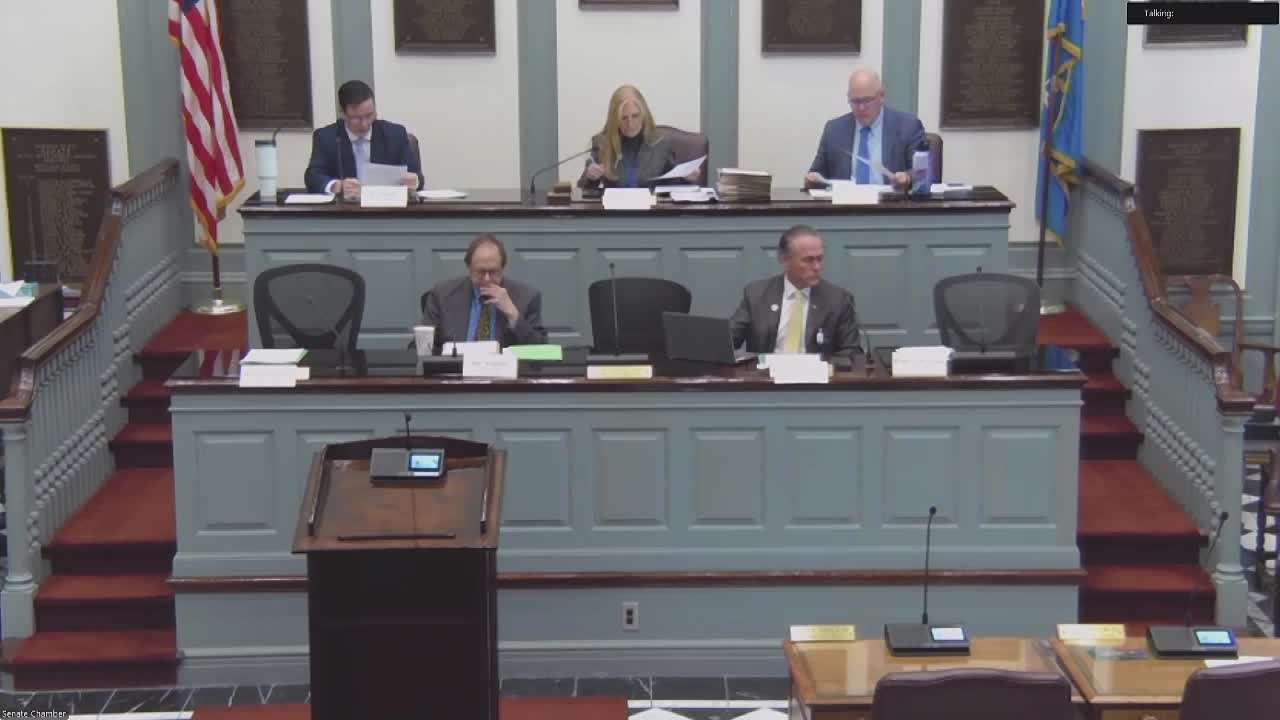Delaware senators consider replacing 'business judgment' rule with 'prudence' for utility rate reviews
Get AI-powered insights, summaries, and transcripts
Subscribe
Summary
Sen. Stephanie Hanson introduced Senate Bill 59 to change the Public Service Commission's standard of review from the business judgment rule to a prudent standard, prompting testimony from utilities, consumer advocates and the public about the potential effects on rates, reliability and oversight.
Senator Stephanie Hanson, chair of the Senate Environment, Energy, and Transportation Committee, opened discussion of Senate Bill 59, saying the bill would change Delaware’s standard of judicial review in utility rate cases from the business judgment rule to the prudent standard. Hanson said the change responds to public concern about fast-rising utility bills and would allow the Delaware Public Service Commission to take a more critical look at costs utilities seek to recover from customers.
Hanson said Delaware is an outlier and that the business judgment rule ‘‘binds [the PSC] to approve [rate increases] unless they can see that it was the result of waste, fraud, or an abuse of discretion.’’ She added that a memo and a state-by-state review showed most other states use some form of prudence review.
Matt Hartigan, executive director of the Delaware Public Service Commission, told the committee that the PSC’s research supports the sponsor’s characterization: almost every other state uses a prudence-based standard for cost recovery. Testimony from public and stakeholder witnesses divided along predictable lines. Marcus Beal, regional vice president of Delmarva Power, said he opposed SB 59 and argued the change ‘‘undermines the necessary separation between the legislature and the Public Service Commission’’ and could harm reliability or jobs. Beal described existing PSC reviews as transparent and said Delmarva had proposed an alternative performance-based plan in 2024.
Consumer and public-interest witnesses voiced the opposite view. Peggy Schultz of the League of Women Voters of Delaware said the organization supports SB 59 and that a prudence standard would better protect ratepayers. Dustin Thompson, chapter director for the Sierra Club Delaware Chapter, and Drew Slater, former public advocate, also testified in support, saying prudence encourages examination of lower-cost alternatives and nonwire options.
The record includes specific examples offered during testimony. Hartigan cited an instance where customers were paying for an annual Delmarva incentive program and said other items routinely proposed in rate cases (charitable contributions, social-club dues) would be less likely to pass a prudence review. Beal and business groups warned that changing the standard could impair utilities’ ability to plan and finance investments needed for reliability.
No committee vote on SB 59 was recorded in the transcript. After hearing testimony and questions, senators moved on to discuss related legislation dealing with recoverable costs and capital spending limits.
